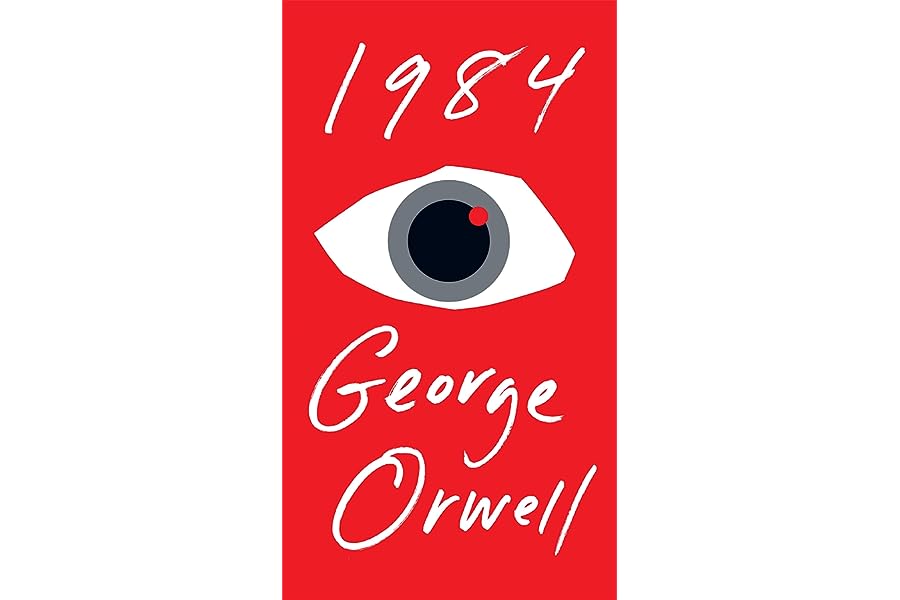One Sentence Summary
1984 by George Orwell is a dystopian political novel about a society oppressed and controlled by comprehensive government surveillance and a dictated language, constructed to create a population of obedient and ignorant citizens.
Book Genre
1984 by George Orwell is a dystopian, political, science fiction novel.
Main Topic of the Book
The main topic of George Orwell’s 1984 is a total society controlled either directly or indirectly by a government that relies on fear and misinformation to maintain control.
Key Ideas
The key ideas explored in 1984 by George Orwell include:
- Totalitarianism: The book explores a future world where a totalitarian government oppresses its citizens through unchecked power and surveillance.
- Brainwashing: The book touches on the concept of brainwashing, which is a form of psychological control exerted by the government.
- Propaganda: The government uses distorted images and messages to promote their agenda and suppress opposing views.
- Dystopia: Orwell paints a picture of a grim and miserable future world where the people face constant surveillance and fear.
Main Parts of the Book and a Short Summary
1984 by George Orwell is divided into three parts.
Part One introduces us to the protagonist, Winston Smith. He lives in a dystopian society known as Oceania, where a totalitarian government oppresses its citizens by means of surveillance, fear, and manipulation.
Part Two is focused on Winston’s relationship with Julia, a technician in the government’s Ministry of Truth. Despite their disapproval of the government, they develop a romantic relationship, and with the help of a underground movement, begin to plot against the government.
Part Three ends with Winston’s downfall, as he is apprehended by the Party and taken to the Ministry of Love for intense psychological torture. In the end, he is broken and accepts the Party’s ideology, ultimately betraying the woman he loves.
Key Takeaways
The key takeaways from 1984 by George Orwell include:
- The dangers of unchecked government power and the tools used by totalitarian governments to manipulate and control their citizens.
- The importance of freedom of thought and expression.
- The power of love and loyalty between two people who resist the oppressive force of an oppressive government.
- The extent to which a government can go to break a person and make them accept their ideology.
Author’s background and qualifications
George Orwell was a British author, journalist, and critic whose works address themes of totalitarianism, anti-authoritarianism, and freedom of thought and expression. He is best known for the novels Animal Farm and 1984, and is widely acclaimed as one of the greatest authors of the 20th century.
Target Audience
1984 by George Orwell is a novel that can be enjoyed by readers of all ages and backgrounds. The novel will appeal particularly to readers interested in dystopian fiction, political science, and philosophy.
Publisher and First Publication Date
1984 was first published in 1949 by Secker & Warburg and is currently published by Penguin Books.

